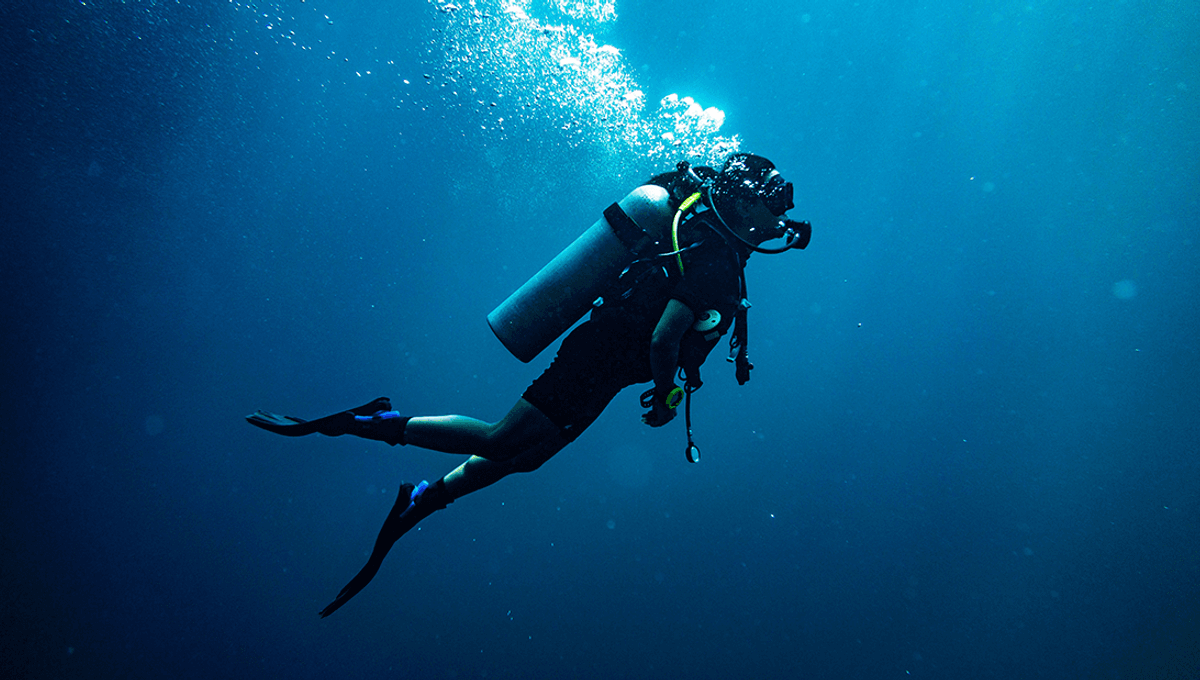
Breathing liquids is generally a bad idea. In fact, few ideas could be worse for anybody who enjoys breathing. But there is a concept – which has been tested on animals and humans – that we should be able to breathe in certain liquids that are rich in oxygen.
It sounds like the stuff of sci-fi, largely because it is, appearing in a whole host of works from The Abyss to The Dark Forest, the origins of the Dark Forest hypothesis. But partial liquid ventilation is used clinically, providing oxygen to patients during mechanical ventilation.
Of course, breathing isn’t taking place in liquid oxygen. Or at least, maybe just the one breath, given that it becomes liquid at temperatures of -183°C (-297°F). Instead medical professionals use oxygen-rich liquids such as a perfluorocarbon (PFC) which can support pulmonary gas exchange.
Outside of medical use, people occasionally get the idea that liquid breathing could benefit deep sea divers. Having your lungs filled with fluid while diving would make the inside pressure match the outside pressure, meaning that you would not have to worry about decompression sickness, aka the bends.
The concept has been tried out in mammals, including cats and mice, some of which survived for weeks. Aside from one major hiccup – they tend to die when returning to normal breathing – it did demonstrate that full liquid ventilation could be possible. However, one problem found in cats may keep the concept out of reach. While getting oxygen into the bloodstream was effective, carbon dioxide elimination was impaired.
In partial liquid ventilation, the amount of liquid is small, and is mainly eliminated via evaporation. Breathing completely submerged in liquid, meanwhile, would not be pleasant, and you would essentially feel like you are drowning the whole time you are doing it. Expanding and contracting your lungs would also be an issue, given that your body is not used to the work involved in moving denser liquids inside of you. Clearing carbon dioxide out would be a problem requiring assistance. To deal with this, some have suggested we could attach a device directly to the bloodstream (via a vein in your leg) to scrub carbon dioxide from your blood.
Creating a new way of breathing underwater is not a pressing concern. However, liquid breathing has also been suggested as a way of dealing with another problem in the future: excessive G-forces faced by astronauts during spacecraft acceleration. Humans can withstand forces of around 9 G for a few seconds, but even facing forces of 6 G for a sustained period would be fatal.
If you place somebody in liquid, however, you can distribute the force over the surface of their body, making them able to withstand forces up to about 24 G. Beyond this, things get unpleasant again.
“The thorax, with its air-filled lungs, has a mean density considerably lower than that of the rest of the body which results, when accelerated during water immersion, in orthogonal homogeneous thoracic squeezing,” one review on the topic explains. “This compression causes severe difficulties from pain, lung hemorrhage, pneumothorax, alveolar collapse, to even death depending on the magnitude of acceleration.”
If the lungs are filled with fluid, however, that shouldn’t be a problem. But the problems of filling someone’s lungs completely with fluids and mechanically ventilating them while in space are, for now, insurmountable.
All “explainer” articles are confirmed by fact checkers to be correct at time of publishing. Text, images, and links may be edited, removed, or added to at a later date to keep information current.
Source Link: Liquid Breathing: Could A Human Breathe In Oxygen-Rich Fluids?